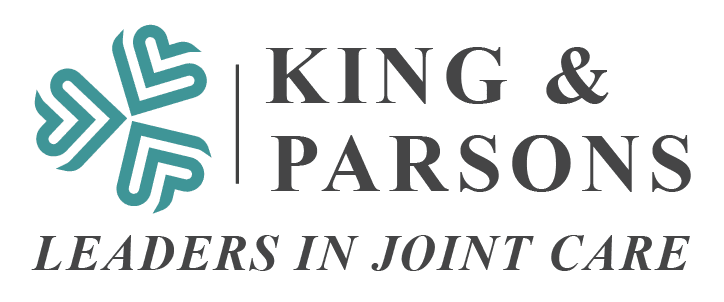Preparing for joint surgery, whether it’s for the knee, hip, or shoulder, is essential for a successful outcome and smooth recovery. Proper preparation can reduce anxiety, improve surgical results, and expedite the rehabilitation process. This guide offers practical advice to help you get ready for your upcoming surgery, focusing on physical, mental, and logistical aspects of preparation.
Physical Preparation
Getting your body ready for surgery is crucial to a speedy recovery. The stronger and more flexible your muscles are before surgery, the easier it will be to regain mobility afterward. Here are some key steps to physically prepare for joint surgery:
- Preoperative Exercises
Preoperative exercises, often referred to as “prehabilitation,” are designed to strengthen the muscles around the affected joint. This is particularly important for knee, hip, and shoulder surgeries, as strong muscles can support the joint and enhance recovery. Knee Surgery: Focus on strengthening the quadriceps, hamstrings, and calf muscles. Exercises like leg raises, hamstring curls, and calf raises can be beneficial. Low-impact activities such as cycling or swimming can also help maintain overall fitness. Hip Surgery: Strengthening the muscles around the hip, such as the glutes, quadriceps, and core muscles, can improve outcomes. Exercises like hip bridges, seated marches, and side leg lifts are recommended. Shoulder Surgery: For shoulder surgery, strengthening the rotator cuff and shoulder blade muscles is crucial. Gentle resistance band exercises and range-of-motion exercises can be helpful. Always consult with your surgeon or a physical therapist before starting any preoperative exercise program to ensure it’s safe and effective for your specific condition.
- Weight Management
Maintaining a healthy weight is important for reducing stress on your joints, both before and after surgery. Excess weight can increase the risk of complications during surgery and slow down the recovery process. If needed, work with a healthcare professional to develop a safe weight management plan that includes a balanced diet and regular exercise.
- Quit Smoking
Smoking can impair wound healing and increase the risk of complications such as infections and blood clots. If you smoke, try to quit at least four to six weeks before your surgery. Quitting smoking can significantly improve your surgical outcomes and overall health.
Mental Preparation
Mental preparation is just as important as physical preparation. Understanding what to expect and developing a positive mindset can help reduce anxiety and improve your overall experience.
- Educate Yourself
Take the time to learn about your specific surgery, including what will happen before, during, and after the procedure. Understanding the process can help alleviate fears and make you feel more in control. Ask your surgeon questions such as: What is the expected recovery time?
What are the potential risks and complications?
What can I do to optimize my recovery? Attending a preoperative class, if offered by your healthcare provider, can also provide valuable information and help you feel more prepared.
- Set Realistic Expectations
Recovery from joint surgery takes time, and it’s important to set realistic expectations about your progress. Discuss with your surgeon what you can expect in terms of pain management, mobility, and rehabilitation. Understanding that progress may be slow but steady can help you stay motivated during the recovery process.
- Develop a Positive Mindset
A positive attitude can significantly impact your recovery. Practice relaxation techniques such as deep breathing, meditation, or visualization to help manage stress and anxiety. Staying focused on your recovery goals and celebrating small milestones can also boost your motivation and outlook.
Logistical Preparation
Proper logistical preparation ensures a smooth transition from the hospital to home and helps prevent unnecessary complications.
- Prepare Your Home
Making your home safe and comfortable for recovery is crucial. Here are some tips to get your home ready:
Create a Recovery Area: Set up a comfortable area with a chair or bed, within easy reach of essential items such as medications, water, and a phone. Remove Hazards: Clear walkways of clutter, secure loose rugs, and ensure good lighting to prevent falls. Bathroom Safety: Consider installing grab bars in the shower or bathtub and using a raised toilet seat to make bathroom use easier and safer.
- Arrange for Help You may need assistance with daily activities such as cooking, bathing, and transportation during the initial recovery period. Arrange for a family member, friend, or professional caregiver to help you during this time. If you live alone, consider staying with a loved one or hiring a caregiver for the first few days after surgery.
- Plan for Transportation You will not be able to drive immediately after surgery, especially if the surgery involves your right leg or shoulder. Arrange for someone to drive you home from the hospital and to follow-up appointments and physical therapy sessions.
- Prepare Meals Preparing meals in advance can be incredibly helpful during your recovery. Cook and freeze meals that are easy to reheat, or stock up on healthy, ready-to-eat options. This will allow you to focus on your recovery without worrying about meal preparation.
What to Bring to the Hospital
Packing a hospital bag with essential items can make your stay more comfortable. Consider including:
- Comfortable Clothing: Loose, comfortable clothes that are easy to put on and take off, such as button-up shirts or sweatpants.
- Personal Care Items: Toothbrush, toothpaste, lip balm, and any other personal care items you may need.
- Medications and Supplements: A list of your current medications and any supplements you take. Bring the actual medications if instructed by your healthcare team.
- Entertainment: Books, magazines, or a tablet with headphones to keep you occupied during your hospital stay.
- Assistive Devices: If you already use assistive devices like crutches or a walker, bring them to the hospital. Your physical therapist may want to assess their suitability and show you how to use them safely after surgery.
- Postoperative Considerations
Understanding what to expect after surgery can help you prepare mentally and physically for the recovery process.
- Pain Management Effective pain management is a crucial part of recovery. Your healthcare team will provide a pain management plan that may include medications, ice therapy, and other strategies. Follow their instructions carefully, and don’t hesitate to communicate with your healthcare provider if your pain is not well controlled.
- Physical Therapy Physical therapy is essential for restoring strength, flexibility, and mobility to the joint. Your physical therapist will develop a personalized rehabilitation program based on your specific surgery and goals. Consistent attendance and effort during therapy sessions are key to a successful recovery.
- Wound Care Proper wound care is important for preventing infections and promoting healing. Follow your surgeon’s instructions for caring for the surgical site, including how to keep it clean and dry. Be alert for signs of infection, such as increased redness, swelling, or discharge, and contact your healthcare provider if you notice any concerning symptoms.
- Follow-Up Appointments Regular follow-up appointments with your surgeon are necessary to monitor your progress and address any concerns. These visits are an opportunity to discuss your recovery, ask questions, and make any necessary adjustments to your rehabilitation plan.
Preparing for joint surgery involves more than just showing up on the day of the procedure. By focusing on physical, mental, and logistical preparations, you can enhance your recovery and achieve the best possible outcome. At King & Parsons, we are committed to providing comprehensive care and support throughout your surgical journey. If you have any questions or concerns about your upcoming joint surgery, don’t hesitate to contact our team. For more information, visit our pre op page for more educational materials.















